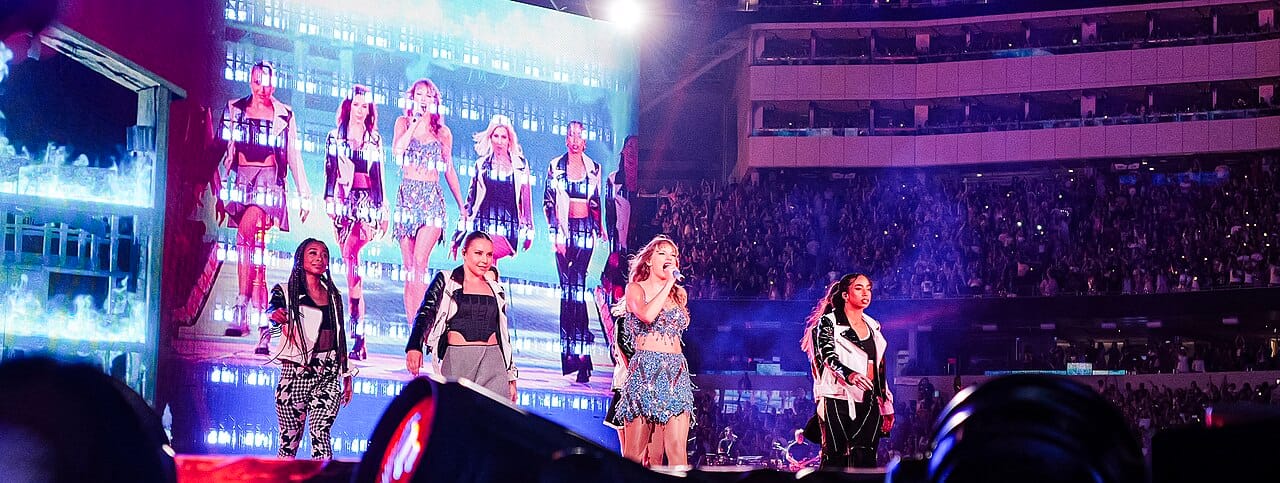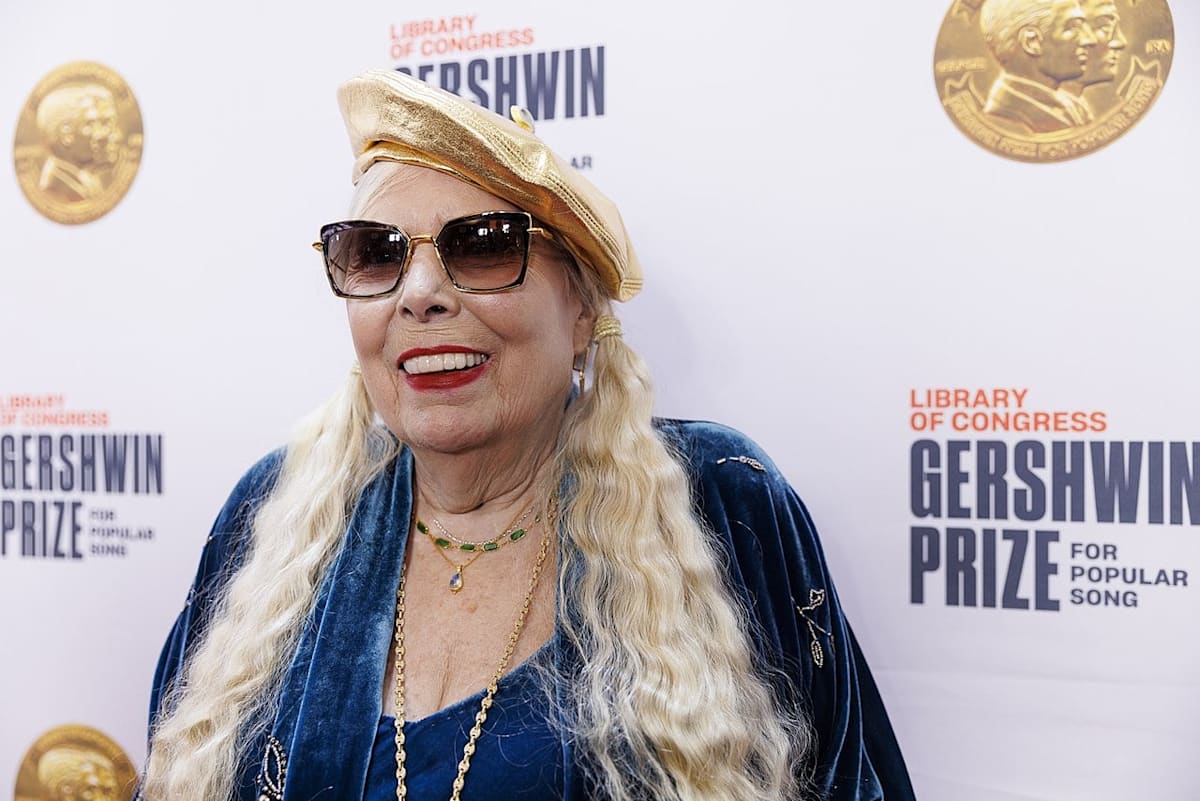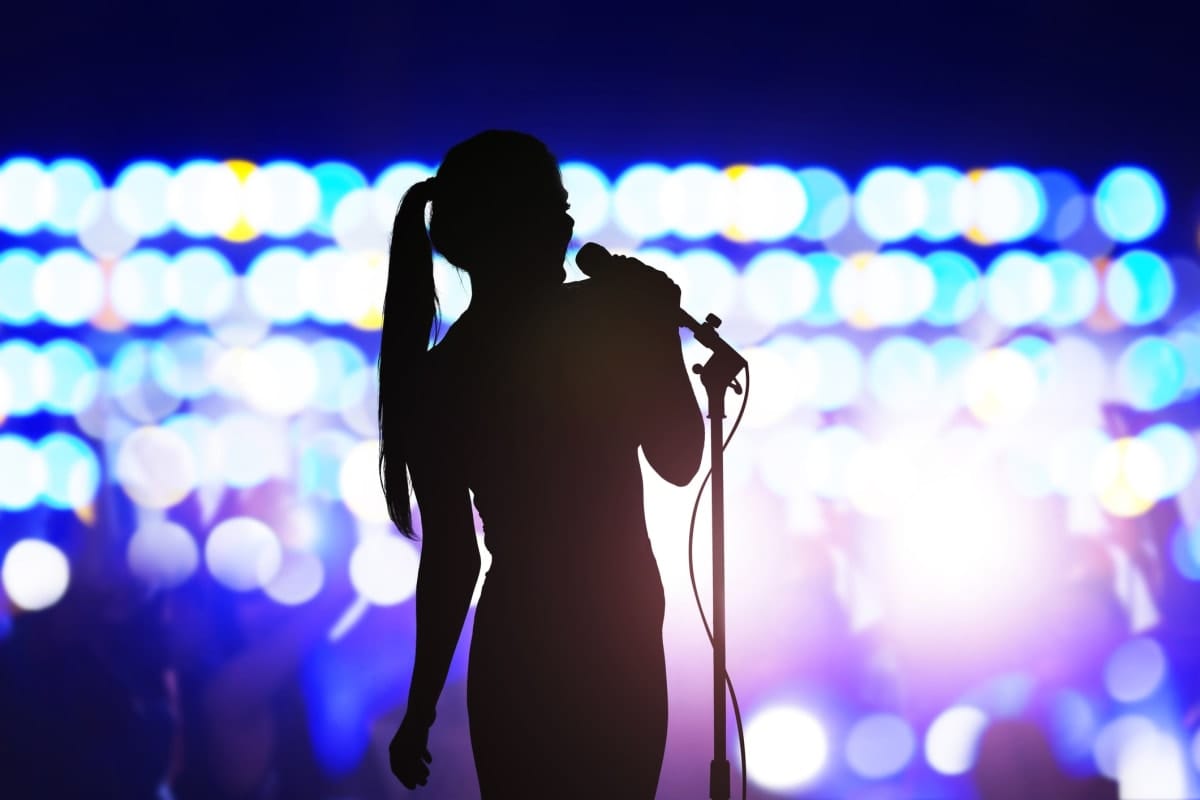
In the wake of the major award season wrapping up, 2024 is becoming the year for women in music. By women, we mean cis-women, trans-women, and intersex women.
At the Academy Awards in the US, 22-year-old Billie Eilish became the youngest person to win two Oscars for best original song. This year the award was for the mega-hit What Was I Made For?, from the Barbie film, co-written with her brother, Finneas O’Connell. The song also won a Grammy and Golden Globe. In 2021, the siblings won an Oscar for No Time to Die, the title track from the James Bond film.
Women top the music charts
Women are now receiving huge exposure in the music industry, despite its notorious domination of the boys’ club by white male gatekeepers.
In 2023, female artists topped the UK music charts for an unprecedented 31 weeks, accounting for 48.5% of the top-10 songs – the highest percentage for women in music in the 21st century.
At the 66th Grammy Awards, seven of the eight major awards were won by women (including Eilish and Miley Cyrus), and colour-blindness was off the table, with women of colour scoring new talent (Victoria Monét) and other accolades (Olivia Rodrigo, SZA, Mañana Será Bonito, and Coco Jones).
Taylor Swift was the first musician to win four Grammys for best album. On her Eras tour, the superstar gathered her largest audience – 96,000 “Swifties” – at the Melbourne Cricket Ground. The gig marked the largest audience for a female musician in 10 years, surpassing Lady Gaga’s Chromatica Ball gig of 78,000 at Paris’ Stade de France in 2014.
Feminist music icons
Research regarding the representation of women in music and sexual violence in the industry has become a crowded space since the revitalisation of #MeToo in 2017.
A 2024 global report, Be The Change: Gender Equality in the Music Industry, said that “the music industry has a clear disconnect in how we assume industry professionals and artists experience the industry, and the reality”.
However, in an industry that glorifies youthful beauty, ageism wasn’t an issue at the Grammys this year, with best folk album going to the 80-year-old Joni Mitchell for Live at Newport, and the music icon performing at the awards for the first time, playing signature hit Both Sides Now.
At 55, Australian Kylie Minogue won her second Grammy for Best Pop Dance Recording with her viral song Padam Padam. The first woman to top album charts in five consecutive decades, Minogue received the Global Icon Award at the Brit Awards in March.
Misogyny in music
Despite all this welcome news, in January the UK’s Women and Equalities Committee’s Misogyny in Music report said sexual violence is at endemic proportions globally, and intensifies for women with intersectional barriers, tied to age and race.
Australian and international research focuses on capturing the experiences of younger cisgender, white women at live music events, such as the 2023 pilot study about sexual violence in the renowned music city of Melbourne. In that survey, 85% of respondents were cisgender, white women, aged between 25 to 44, all of whom felt unsafe in all of the city’s music spaces.
Music spaces included production spaces (music offices, recording studios, rehearsal rooms), participation spaces (live music events, venues, festivals), music education (workplaces, schools, TAFE and tertiary sector) and music media (newsrooms, reporting in the field).
These are spaces in which intersectional women are clearly represented “in real life”, but have little presence in the literature.

Finding believability
Music spaces are petri dishes for sexual violence, linked to hedonistic behaviour, risk cultures, drug and alcohol abuse, influenced by sexual objectification. This disempowers female music workers, deters others from working in it, and/or participating in music spaces.
The Melbourne survey in 2023 explored how the transient, precarious and collaborative nature in music spaces unites individuals from the creative industries, disparate backgrounds, with a spectrum of expertise, often in exploitative, temporary arrangements.
These factors make it easier for sexual violence to go unnoticed, unreported, or not believed and normalised.
Less than 18% of victim-survivors who report this behaviour struggle to be believed, and their wellbeing, social participation and/or career prospects, not the perpetrators’, is often impacted.
Read more: Unifying media approaches to address the violence against women crisis
In Believability: Sexual Violence, Media and the Politics of Doubt, Sarah Banet-Weiser and Kathryn Claire Higgins said the testimonies of marginalised groups, such as women and girls, queer people, and people of colour from all genders, are often seen as “unbelievable”, “untrustworthy”, and “doubtful subjects” in allegations of sexual violence.
They highlight that seven years after the utopian visibility of #MeToo, the public still puts the dystopian onus on the victim-survivors (usually women) to be believed, and emotionally convincing in most cases.
As more than 80% of victim-survivors never report incidences, the code of silence about sexual violence will continue at epidemic proportions unless drastic measures are taken.

Moving forward
After winning three Grammys this year, Phoebe Bridgers, from queer band Boygenius, called out the lack of female representation and the prevalence of sexual violence in the music industry.
“The ex-president of The Recording Academy, Neil Portnow, said that if women want to be nominated and win Grammys that they should ‘step up’. He’s also been accused of sexual violence,” she said.
Bridgers was referring to allegations against Portnow by an anonymous Jane Doe accuser who filed suit against the music executive after claiming he drugged and raped in a New York hotel room in 2018. The Jane Doe also sued The Recording Academy for not stepping up, protecting Portnow, and silencing the plaintiff and other women who have spoken out about sexual violence.
In a US report, Sound Off: Make the Music Industry Safe, published a few weeks after the Grammys, a new coalition of female US musician-activists compiled a checklist of demands to the music industry’s biggest companies. These included the publication of artists and executives credibly accused of sexual violence, no more non-disclosure agreements to silence victim-survivors, and the adoption of a survivor bill of rights.
Despite research, campaigns, recommendations, AI and detection technologies (smartphone applications, smart speakers), and safety policies, women’s experiences of sexual violence in music spaces remain poorly understood by the creative industries, researchers, healthcare providers, police, and legislators.
Few studies also focus on how sexual violence in music is a macrocosm of #MeToo narratives found in sport, film, theatre, and academia, where women are remaining undervalued, underpaid, and underrepresented.
The absence of competent information and knowledge about sexual violence in music spaces (and other creative places) can led to further stigma, prejudice and discrimination, and dampen this newfound visibility for women in music.
If reading this article causes discomfort, distress or trauma through reliving an incident of sexual violence, there are counselling services, such as 1800 RESPECT (1800 737 732).





